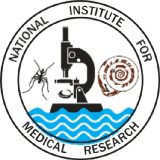Background and Objective
In spite of the substantial efforts to combat malaria, the disease has remained number one public health problem in Tanzania. The reasons for this situation include human socio-cultural and environmental factors, weak health systems, limited national budgets, poor governance and accountability as well as antimalarial drug and insecticide resistance. In developing countries, there is a bidirectional link between the livelihoods, environmental factors and health. Malaria is a particularly important disease that illustrates the interactions between livelihood, ecosystems and health systems. It is important therefore, to examine the links within a broad framework that considers the different pathways, given the multiplicity of interactions that can produce unexpected outcomes and tradeoffs. The main objective was to investigate the relationships between malaria, livelihoods, ecosystem and health systems in Kilosa District in Tanzania.
READ Health
Research program
NRS 003 2013 Malaria and Livelihoods in Kilosa District, Central Tanzania IPMA Team.
Basic member
